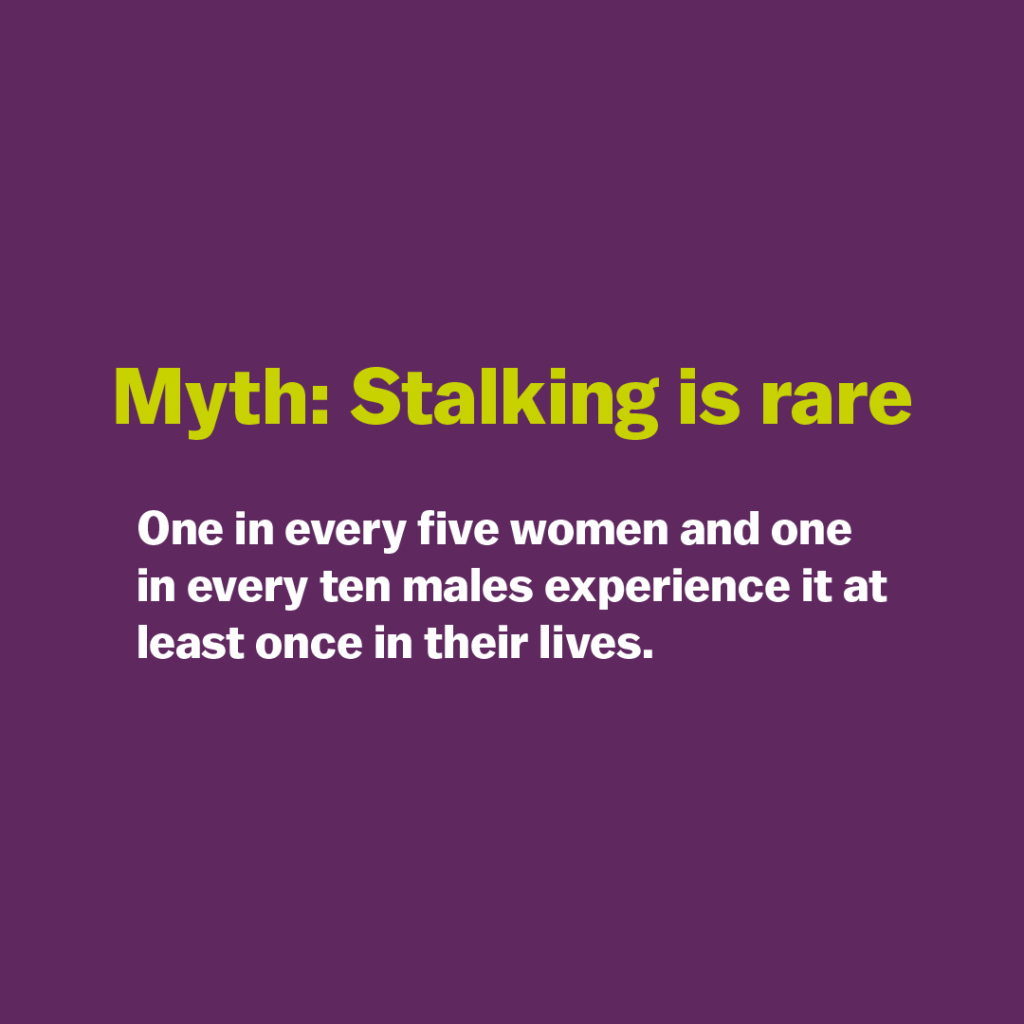Unmask stalking – the truth behind the shadows in the UK
Stalking is an alarming problem in modern society, sometimes cloaked in myths and misconceptions, that requires our attention and knowledge.
Despite its prevalence, misinformation is widespread, promoting stereotypes and impeding effective prevention and intervention efforts.
In this blog, we debunk stalking misconceptions, using UK sources to shed light on this complicated topic and provide readers with reliable information.
Myth 1: Stalking is rare
Contrary to popular belief, stalking is far from rare. According to the Crime Survey for England and Wales, stalking is a concerning regular occurrence. One in every five women and one in every ten males experience it at least once in their lives.
These figures demonstrate the high incidence of stalking and emphasise the need for heightened awareness and action.
Myth 2: Stalking only happens to celebrities
While high-profile cases get media attention, stalking affects people from many walks of life. According to research conducted by the Suzy Lamplugh Trust, the majority of stalker victims are average residents rather than superstars.
Stalking has no bounds, and anyone can become a target, regardless of popularity or social status.
Myth 3: Stalking is just persistent pursuit
Stalking refers to a wide range of behaviours which go beyond persistent pursuit. The Crown Prosecution Service (CPS) defines stalking as a pattern of unwanted and obsessive behaviour that causes fear or distress to the victim.
This can include surveillance, harassment, threats, and online stalking, among other tactics. Recognising the various signs of stalking is critical for timely response and support.
Myth 4: Stalking is a crime of passion
Stalking is not motivated by love or passion, as popular culture portrays it. Instead, it arises from a desire to exert control, authority, and intimidation on the victim.
The Fixated Threat Assessment Centre (FTAC) highlights the predatory nature of stalking, emphasising the perpetrator’s intent to instil fear and assert power. Understanding the motivations behind stalking is essential for dismantling harmful myths and addressing the root causes of this behaviour.
Myth 5: Stalking is a victimless crime
Stalking causes deep psychological and emotional trauma to its victims, typically resulting in anxiety, depression, and PTSD.
The National Stalking Helpline emphasises the traumatic impact of stalking, citing many victims’ feelings of isolation and helplessness.
Furthermore, stalking might turn into physical aggression, with tragic outcomes. Recognising the gravity of stalking is critical for offering appropriate assistance and protection to individuals impacted.
Conclusion
Dispelling stalking myths is an important step toward raising awareness, encouraging empathy, and creating a safer society for everyone.
By challenging misconceptions and amplifying the voices of survivors, we can work towards eradicating this insidious form of abuse.
Let us unite in our determination to combat stalking and support those afflicted, guided by facts, compassion, and solidarity.
Help and support
If you believe you’re being stalked or harassed, you have the option to report it online or by dialling 101. In case of immediate threat, don’t hesitate to call 999.
If you are experiencing any form of stalking or harassment from someone that you are or have been in a relationship with, or who is related to you then help is available: somersetdomesticabuse.org.uk or by telephoning 0800 69 49 999 – between 8am – 8pm, 7 days a week.
If you are deaf, hard of hearing or speech-impaired you can register with emergencySMS.net. Once registered you will be able to send a text to 999 if you require help in an emergency.
Support is also provided by the Suzy Lamplugh Trust via the National Stalking Helpline at 0808 802 0300, or through the Paladin National Stalking Advocacy Service at 020 3866 4107.
The Suzy Lamplugh Trust is committed to providing education and training to individuals, businesses, and organizations about personal safety and the risks associated with stalking. They offer free online training to everyone, aiming to empower individuals to take safe actions if they witness street harassment, with the goal of preventing such incidents.
Further reading: Beyond the Headlines – exposing the Truth About Stalking

